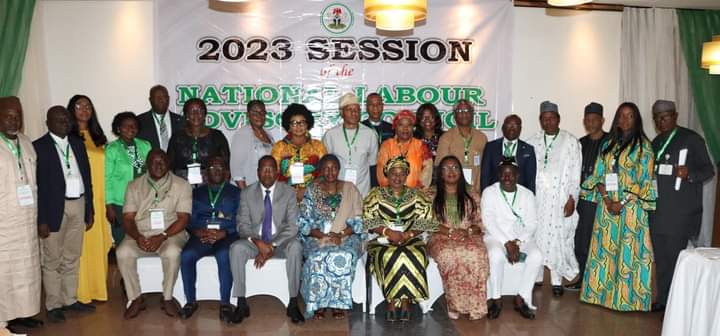The Federal Government has faulted the irregular practice of state governments establishing ministries and departments of Labour, and implementing parallel guidelines and policies to those developed at the federal level.
The Permanent Secretary, Federal Ministry of Labour and Employment, Kachallom Daju, mni, criticised this trend by states while flagging off the 2023 Session of the National Labour Advisory Council (NLAC), taking place in Uyo, Akwa Ibom State from 13th to 14th July.
According to a statement by Olajide Oshundun, Director, Press and Public Relations, quoted the Permanent Secretary , saying the NLAC would critically discuss that emerging trend, which if left unchecked, could destabilise the already challenged Labour administration system in Nigeria.
Daju described that practice as counter-productive, and pointed out that it went against Section 34 of the Second Schedule of the Constitution of the Federal Republic of Nigeria, 1999 (as amended), which placed labour matters on the Exclusive List, thereby reserving the power to legislate on labour-related matters exclusively to the Federal Government.
According to her, another crucial item for discussion by the Council would be the need for state governments to embrace a uniform implementation of the Minimum Wage Act, 2019.
She noted the need to align the minimum wage with the current economic realities, as well as the International Labour Standards that serve as the bedrock of legal framework for labour administration in Nigeria.
Daju also remarked that Nigeria needed to develop strategies to bridge the gaps identified by the Committee of Experts on the Application of Conventions and Recommendations (CEARCR), on the application of Conventions No. 26 on Wage Fixing Machinery, 1928; and No. 95 on Protection of Wages, 1949.
She noted that this has become crucial in the face of the impact of the recent removal of subsidy on petrol on the Nigerian workers.
The Permanent Secretary disclosed that the Council was established in 1955 to offer advisory services to the Minister of Labour in the areas of Labour Administration, Employment Relations and Labour Productivity, and it also plays the critical role of promoting and ensuring a Labour Administration System in line with international best practice.
She added that the Council was inactive between 2013 and 2021, when it was revived, and a new Council was inaugurated.
Earlier, Director, Productivity Measurement and Labour Standards department of the Ministry, Juliana Adebambo, stated that the revival of the NLAC was evidence of Government’s political will to increase collaboration between social partners and governments (Federal and State) to ensure lasting industrial harmony, socio-economic development, as well as national growth.
Membership of the Council comprises the Federal, the thirty-six states and the FCT governments, Nigeria Labour Congress, Trade Union Congress, Nigeria Employers’ Consultative Association (NECA), the country representative of International Labour Organisation, and other stakeholders.
Caption:
Sitting: Permanent Secretary, Federal Ministry of Labour and Employment (FML&E), Kachollom Daju, mni (middle); Retired Permanent Secretary, Federal Ministry of Labour, Dr Peter Tarfa (3rd left); Director, Productivity Measurement, FML&E, Juliana Adebambo (3rd right); Director General Nigeria Employers Consultative Association, Adewale Smarth (2nd left); Representative of ILO, Chinyere Emeka-Anuna (2nd right); NLC Representative, Comrade Titus Amber (left); TUC Representative, Comrade (Dr) Tommy Etim (right) and other Council members at the 2023 meeting of the National Labour Advisory Council (NLAC), Uyo, Akwa Ibom State




Comments are closed.